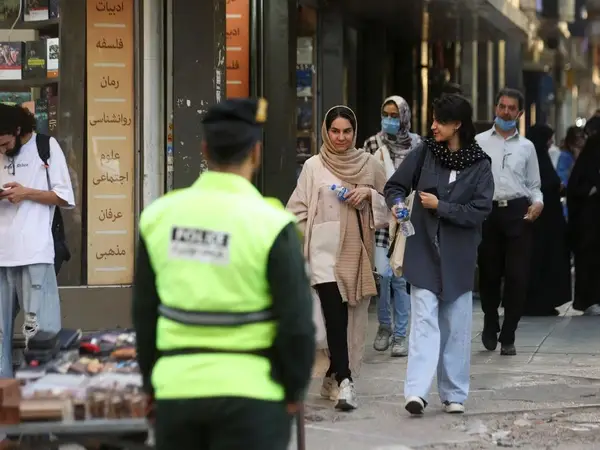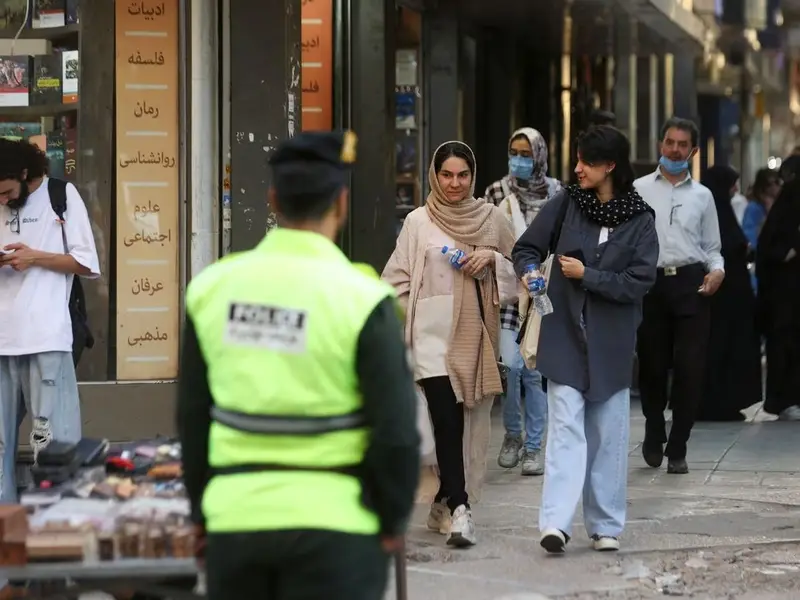Qom’s police commander says 74,000 text messages have been sent to women in the last 10 months warning them of hijab violations.
Mohammad-Reza Mirheidari highlighted, "The referral of cases to the judicial authorities has increased more than six times compared to last year."
Additionally, he mentioned, "We sealed off nine women's beauty salons, 65 coffee shops, four sports clubs, and nine other complexes."
In recent months, the Tehran police have intensified efforts to curb persistent hijab defiance, leading to the seizure of cars.
Iranian officials have acknowledged the issuance of police warnings through text messages alerting citizens to the imminent seizure of vehicles for non-compliance with compulsory hijab rules.
The police directive reportedly extends to citizens, resulting in the confiscation of hundreds of cars temporarily prohibited from use.
As part of an escalating crackdown on hijab defiance, Iranian parliamentarians have given their approval to the government's Hijab and Chastity bill. The legislation, aiming for stricter penalties regarding hijab infractions, has faced substantial criticism from human rights groups.
The heightened enforcement of hijab regulations follows widespread protests in Iran since the death of Iranian-Kurd Mahsa Amini in 2022. Amini's arrest in Tehran, allegedly for defying the Islamic republic’s mandatory hijab, triggered the most significant uprising in recent history.
Women across the country have been actively challenging the mandatory hijab, resulting in an increased presence of hijab enforcers in public spaces such as subway stations.
Moreover, surveillance cameras have been installed to identify and apprehend individuals violating hijab regulations.

